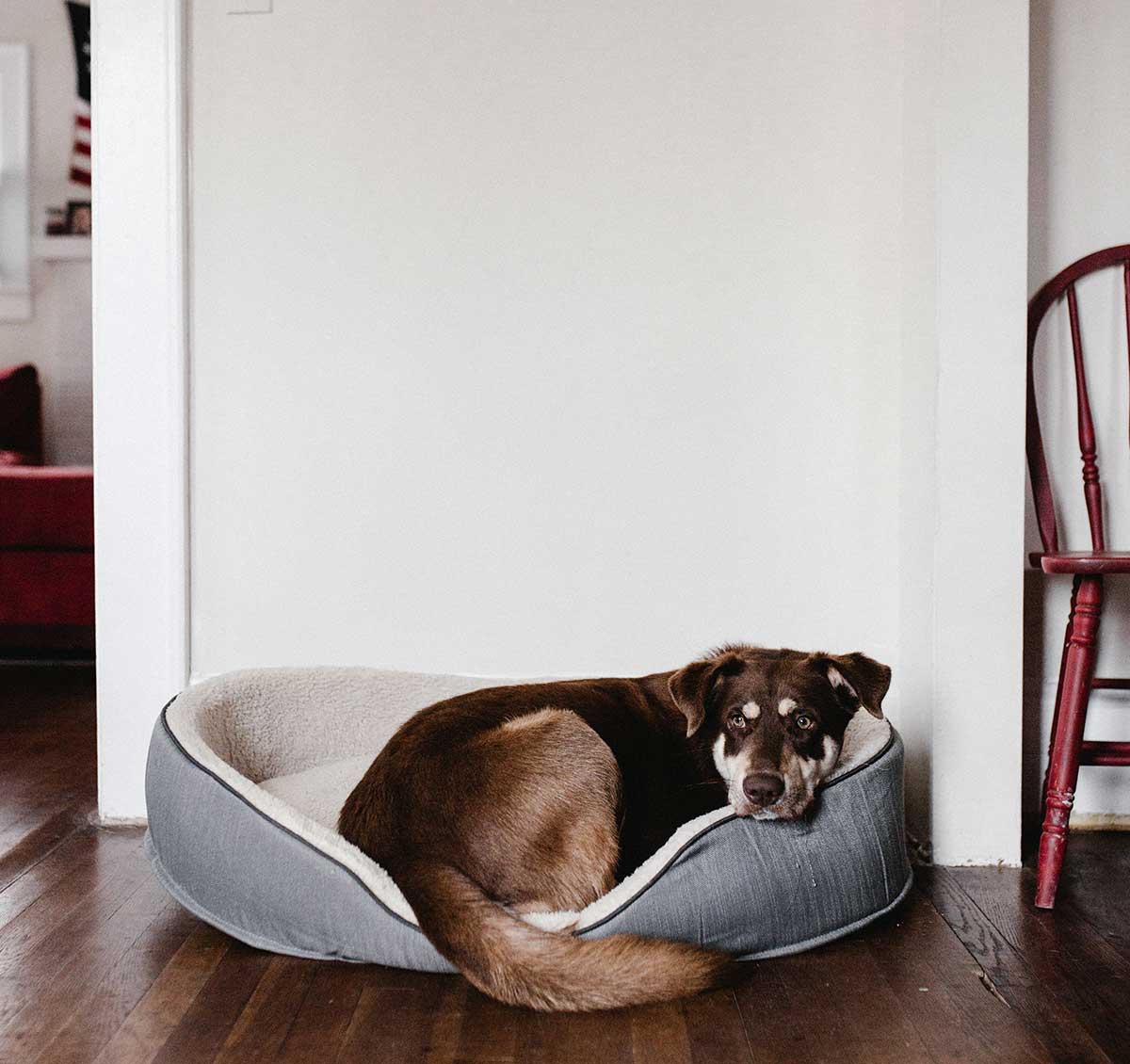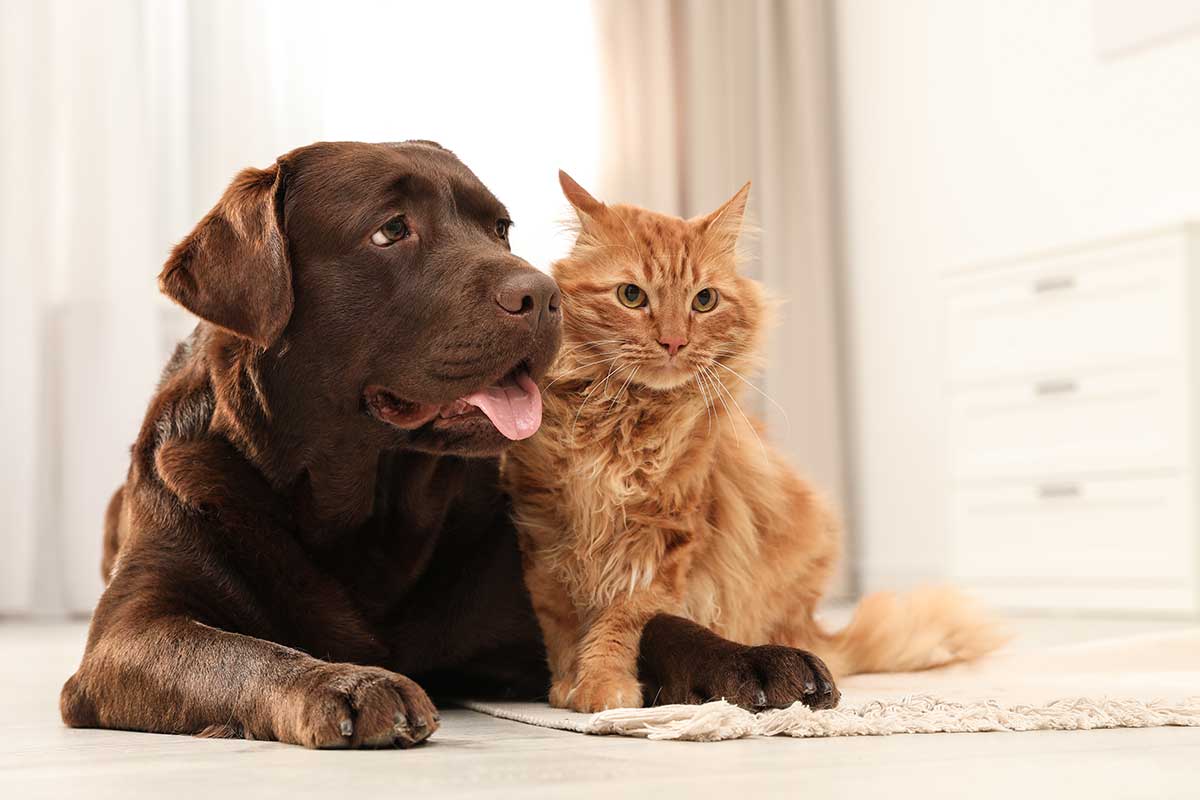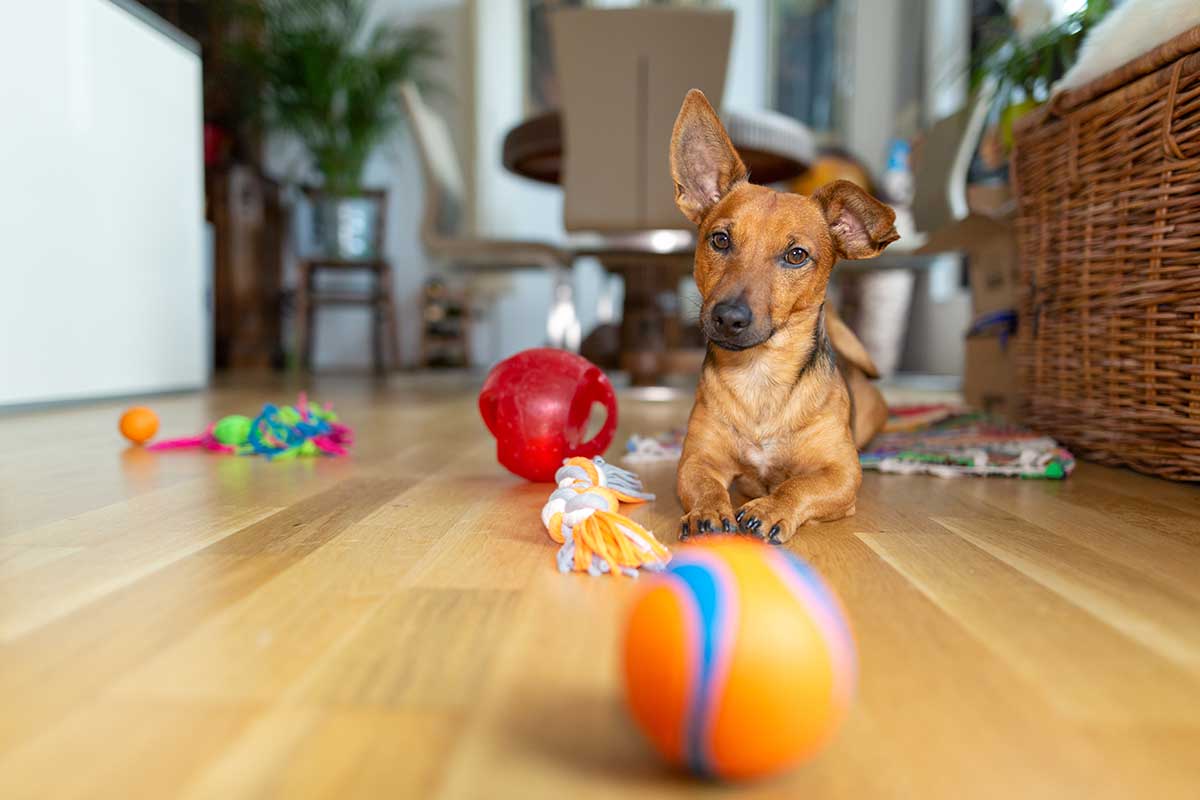
It is important to reduce stress for pets during lockdown, as they can become anxious with changes to routines and more people in the home.
Increased stress for your pet can lead to changes in behaviour and can cause worry and stress for owners. There are a number of changes that could affect your pet during this time, which include:
- Everyone in the family being at home all the time
- Lots of noise and activity at times when its normally quiet
- Changes to routines, such as feeding or walks
- Family members spending more time with pets and interacting with them differently
- For dogs, especially, reduced exercise, ability to run free off the lead and play with other dogs
Signs that your pet may be anxious could include:
- Hiding away or not wanting to interact as usual
- Aggression, barking or snarling at family members
- Increased vocalising, you dog may bark more
- They may be less active, not wanting to go on a walk or play
- Not sleeping at night or maybe sleeping more during the day
- Changes in appetite, eating less or changes to digestive function
To help reduce stress for pets during lockdown there are some positive things you can do, which include:
Daily routines
Some pets can get anxious due to changes in their normal routines. Try to stick to daily routines with your pets, such as feeding times and exercise. If possible, exercise your pet at the same time every day to help reduce their stress.
Consistency
When interacting with pets make sure all family members react the same way. For example, if they were allowed upstairs before lockdown – but now they aren’t because someone is working from home, this may cause them to become stressed. Be mindful of your pet when adapting to life in lockdown.
Body language
Keep an eye on your pet’s body language – they are usually good at letting us know when they have had enough interaction. Speak to family members and ask them to respect when pets take themselves away for some quiet time.
Access to a safe place
Create a den or safe space to help reduce stress for pets during lockdown. This can be a comfortable resting place where they can hide should they become stressed. Ask other family members not to approach them if they are in their safe place. They are probably enjoying some peace and quiet in an unusually hectic household.
Exercise
If possible, continue to provide the same level of exercise. Try not to increase exercise levels without veterinary advice. Use toys to help keep cats entertained and active in the home. We highlight some ways to exercise dogs in the home here.
Add in quality pet time
Plan your day to include some quiet time for pets, when everyone has settled down. This will be important to your pet as they will be used to having the house to themselves during the day.
Don’t overwhelm your pet
Pets may be used to having the house to themselves most of the day and not used to so much interaction from you or family members. Some pets don’t like too much close contact or interaction. With more people being at home at one time, remember the safety of your pet and family members and don’t let them get into difficult situations that might overwhelm them.
Prepare for back to work life
Your pet may enjoy you being around more, however it’s important that they do not start to rely on your company. Separation anxiety in dogs is common and it’s important to prepare them for when you return to work by building in periods of separation, even by being in different rooms. This could include your normal ‘leaving routine’ before setting down in the home office.
If you notice any unusual behaviour or are worried about your pet, contact your vet who is in the best position to offer advice.
Ask your vet about Nutracalm, which has been specially formulated to naturally calm anxious pets and reduce unwanted or unruly behaviour in dogs and cats.


